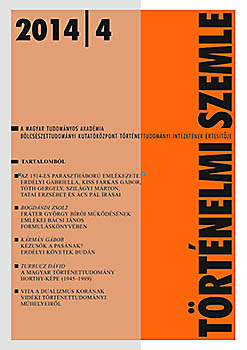Taurinus Parasztháborúja. Kétértelműség és paradoxitás a Jagelló-kor humanista irodalmában
The Stauromachia of Taurinus Ambiguity and Paradox in the Humanistic Literature of the Jagellonian Age
Author(s): Gábor Kiss FarkasSubject(s): Studies of Literature, Military history, Hungarian Literature, 15th Century, 16th Century
Published by: Magyar Tudományos Akadémia Bölcsészettudományi Kutatóközpont Történettudományi Intézet
Keywords: Stauromachia; Stephanus Taurinus; 1519; 1514 peasant war; Hungary;
Summary/Abstract: The Stauromachia of Stephanus Taurinus (1519), the most significant literary account of the 1514 peasant war in Hungary, has been justly considered as a work deeply imbued with the ironic view of history and human fate. In my lecture, I will offer a survey of the Latin and vernacular works from the Jagellonian age in Hungary, which might be associated with paradoxic and ironic story-telling. Starting with the Apologia regis Wladislai (1493) to the edition of Homeric Batrachomyomachia by Bartholomaeus Frankfordinus and the ironic declamation of Valentinus Hagymási (De laudibus et vituperio vini et aquae), the ‘oblique’ manner of speaking was more present than ever before in the humanistic culture of the age. After reconsidering the ancient and contemporary sources of oblique narration, I argue that this contextual evidence must be taken into account in the interpretation of the Stauromachia.
Journal: Történelmi Szemle
- Issue Year: 2014
- Issue No: 04
- Page Range: 549-562
- Page Count: 14
- Language: Hungarian

